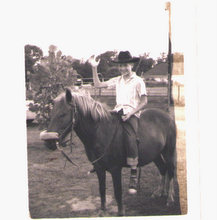
The sixties, in addition to being a time when young people stopped visiting the barber, was the principle decade of the Civil Rights Movement. In New Jersey, forty years ago, the Newark riots took place. A good article on this period in Newark is available at the Star-Ledger website.
I remember the end of living in a segregated world. Going to Dallas with my mother to visit family, we arrived at Love Field and there I had to go to the bathroom. There was a White men's room and a room for the colored. My mother said I should go to the White bathroom.
Even Hackensack had bussing to keep the negro children in Beach Street school and the wealthy kids who lived on Summit Avenue in a white elementary school. Every morning, instead of walking three blocks to Beach Street School the youngsters were bussed to Fanny Hillers.
The civil rights movement was a big topic at the dinner table. Mother liked to remind my father that the North was just as segregated as the South.
Lyndon Johnson promoted the Great Society program with mixed results. The Newark riots came as a surprise to most people in New Jersey. I remember hearing "they had some trouble makers in Hackensack too" (presumably at one of the bars in the Central ward) but, the story went, "they chased them back to New York."
In 1968 my father was asked to serve on the Human Rights Commission in town. The prosecuted cases of housing distinction. After King was assassinated, the City Council led a memorial service in front of the Court House in Hackensack. Everybody sang, "We Shall Overcome".
Livingston College was created partly as a result of the Newark riots. Today, Livingston College is no more. Beach Street School was closed and became part of the high school campus. Today, throughout America White men and Black men stand proudly next to each other at the urinals.

No comments:
Post a Comment